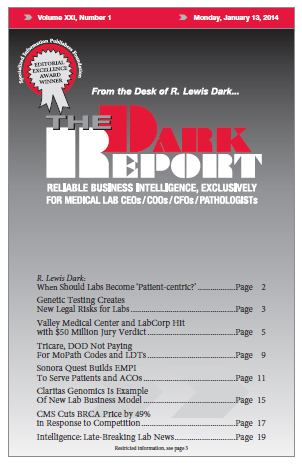CEO SUMMARY: One by one, new business models for clinical laboratory testing are popping up. Each is a response to healthcare’s rapid evolution, the ongoing decline in lab test reimbursement, and the growing role for molecular diagnostics and genetic testing. In Cambridge, Massachusetts, Claritas Genomics, formerly the molecular lab at Boston Children’s Hospital, is one …
Claritas Is Example of New Lab Business Model Read More »
To access this post, you must purchase The Dark Report.


